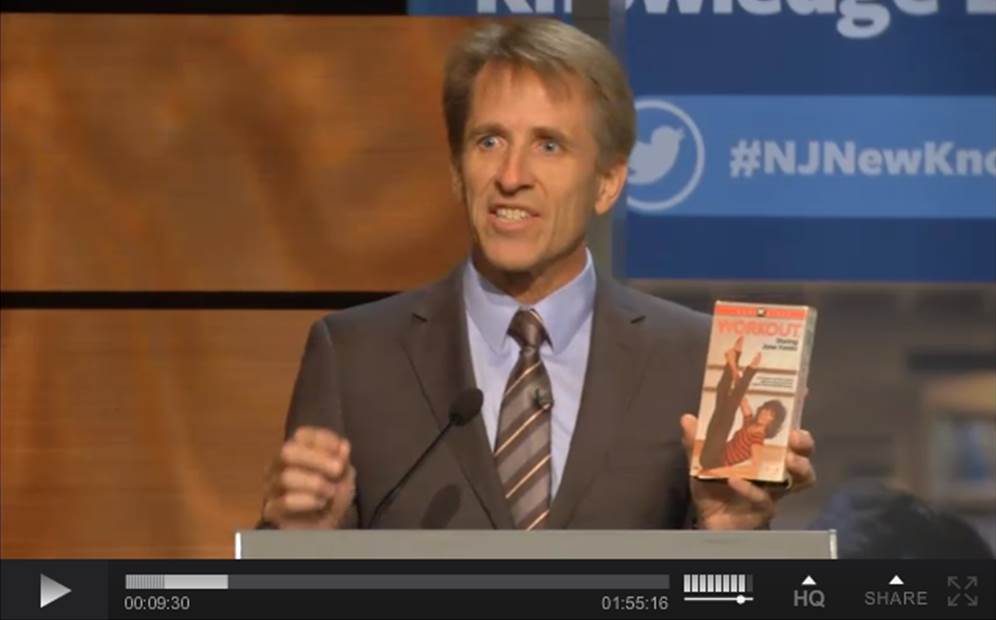Every time I hear about the online revolution that is occurring in higher education, I have a vision of the family room in my parents' home in the suburbs in the 1980s. There, underneath the television, was the remarkable technological innovation of its day, the VCR. And sitting on top of it was the best-selling video of the decade: Jane Fonda's Workout.
Jane Fonda's fitness videos were a national phenomenon, a blockbuster like nothing else the nation had ever seen. The news media featured stories about people who were inspired by the video to get off the couch and exercise. It was convenient, and it was fun, and it was supposedly transforming the country.
Yet despite the sale of more than 17 million Jane Fonda fitness videos, today we as a nation are lazier and fatter than ever. Our mistake was in assuming that the problem with fitness in America is that people did not realize that they could exercise at home. We are making the same error in our excitement about the transformative potential of online education. With the printing press, with libraries, and now with the Internet, access to knowledge is no longer the issue. Real learning is hard work, and just as with physical fitness the barrier to mental fitness is our human tendency toward slothfulness and procrastination.
Why do so many people go to a gym? After all, you can exercise anywhere. The primary reason is that at home you know you are likely to be a slug. Going to a gym is a form of self-discipline: You are surrounded by a social norm that is all about exercising. At home you'll wimp out. At the gym, if you don't exercise you are a loser.
College is like a gym, complete with social norms and peer motivators. A residential college is the extreme, like a fat camp that tries to account for everything. College "courses" -- scheduled classes over 15 weeks -- are not just administrative conveniences, they are personal commitment devices, designed to get students to agree in advance to exercise those brains, helping them resist the temptation to put off the hard work for later.
The problem in education is not the availability of knowledge; it is how to get sustained, progressively more sophisticated student interaction with knowledge. A good teacher provides information, but also probes, promotes discussion, offers praise, assigns writing tasks, provides feedback, and gives quizzes and grades. An excellent instructor is much like a personal trainer who pushes you to go just a little bit further than you knew you could, giving you both a sense of accomplishment and a sense of potential, inspiring you to aim even higher.
Unfortunately, whether online or in person, the incentives within higher education do not encourage good teaching. The common lecture-and-regurgitation format is less taxing for students than real brain exercises, and it is easier for faculty as well. A teacher who really challenges students risks negative reviews on online professor rating sites, driving future students away. And too many online courses only replicate this format or worse, failing to prompt students to engage in the brain exercises that tone and strengthen minds.
Technological change in higher education can be useful, but only if it promotes real learning by moving us beyond lecture-and-regurgitation habits. As it stands now, too much of what goes on in higher education is the equivalent of sitting and only watching Jane Fonda's Workout.
This blog is adapted from my presentation at National Journal Live, sponsored by the Bill and Melinda Gates Foundation, on July 10, 2013. See the full video here.
